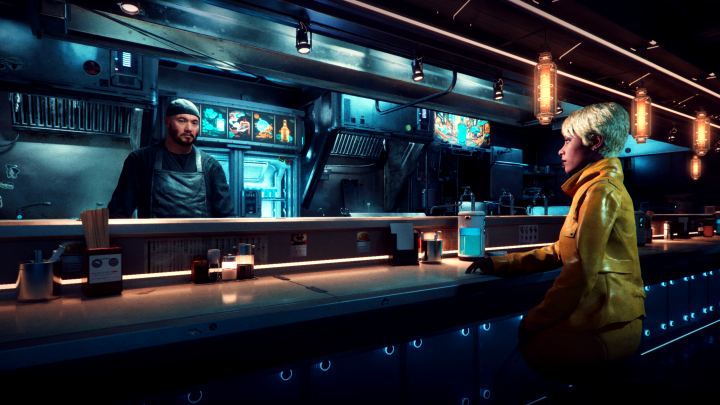
We’re not even two weeks into 2024 and we’re witnessing the emergence of the first significant gaming industry trend of the year: the rise of generative AI.
This week saw a surge of news, as “AI” became the buzzword of this year’s CES. Nvidia announced that it had secured major partners for its Ace microservice, capable of creating fully voiced AI characters in games. The Screen Actors Guild-American Federation of Television and Radio Artists (SAG-AFTRA) actors’ union struck a noteworthy deal with Replica Studios, allowing the service to generate voices based on consenting actors. Other moments were more bizarre, such as when an AI-generated Mario appeared on a screen at the show floor and informed attendees how to purchase video games from Target.
Instead of being met with the usual admiration at tech shows like CES, these announcements sparked confusion and outrage. Few of the announcements went off without some kind of PR crisis requiring explanatory statements from the companies involved. If generative AI truly is the future of video games, CES made it abundantly clear that companies need to align all their legal and ethical frameworks before rolling it out.
AI Controversies
AI got off on the wrong foot at CES due to a glaring error from Nvidia. The company used the show to unveil an expansion of its Ace microservice, a powerful suite of tools capable of generating AI non-playable characters (NPCs). An impressive tech demo showed a player conversing with a computer-created character in a bar and receiving genuine responses to their spoken prompts. This kind of demonstration should have piqued people’s interest. And it did… for all the wrong reasons.
When Digital Trends previewed the demo before the show, we asked Nvidia to explain the data set on which its tools are trained. Instead of providing a detailed response, Nvidia pointed out that there was “no simple answer” due to the various data sets used in different parts of its pipeline. This ambiguous answer would ignite a firestorm on social media, with concerned players speculating that the tool was trained on copyrighted material owned by Nvidia.
After nearly two days of backlash, Nvidia reached out to Digital Trends with the simple answer it originally declined to give. It now stands by the claim that Ace is trained entirely on data it has the rights to, making it “commercially safe”. This explanation might ease some concerns about “stolen” training data, but it’s not the only issue players are concerned about. While some have criticized the data opacity, others have voiced more general concerns about how that tech could put real designers and actors out of work. The logistical answer was simple in the end; the ethical one isn’t.
This became a recurring theme at the show. Perhaps the most significant controversy arose when SAG-AFTRA announced an agreement with Replica Studios, an AI platform that creates digital voices. The actors’ guild stated that it had penned a deal allowing Replica to train on data from consenting members of the guild. This was met with confusion by several members of the guild, expressing such confusion on social media.
Replica Studios was reached out to by Digital Trends for clarification on the training data it uses and whether or not it was using copyrighted material prior to its deal with SAG-AFTRA. A response was not received at the time of publishing.
The Downright Bizarre
While the aforementioned stories dominated the news cycle emerging from CES, they were not the only AI gaming announcements on tap — and the rest of the crop was much weirder. When MSI presented its MEG 321URX QD-OLED monitor, it came with a puzzling feature. The display uses an AI accelerator to analyze the League of Legends mini-map and pinpoint where enemies are. While there may be some positive accessibility benefits, it’s difficult not to see this as a sanctioned way to cheat in a highly competitive game.
Another peculiar AI moment occurred with AI Shark, a revitalized version of the classic GameShark cheat tool rebuilt as AI software. This launch was associated with a partnership with audio company Altec Lansing, with a dubious claim that its official launch was planned to coincide with the Nintendo Switch 2 in September 2024.
No matter which version of the story is true, the chaotic nature of AI’s entire presence at CES was evident. The video game industry was a disorganized mess at this year’s show, with AI news emerging in rapid succession in a hasty manner that left companies seeming overeager to jump on a bandwagon they might not be prepared to ride yet. It was difficult to distinguish legitimate products using licensed data from scams impersonating reputable companies. The existential worry is that we’re building a future devoid of humanity, where product trumps art. If CES offered a glimpse of where generative AI is taking us next, it doesn’t bode well for the future of gaming.
If you have any questions about this, do not hesitate to get in touch with us.
Editors’ Recommendations


